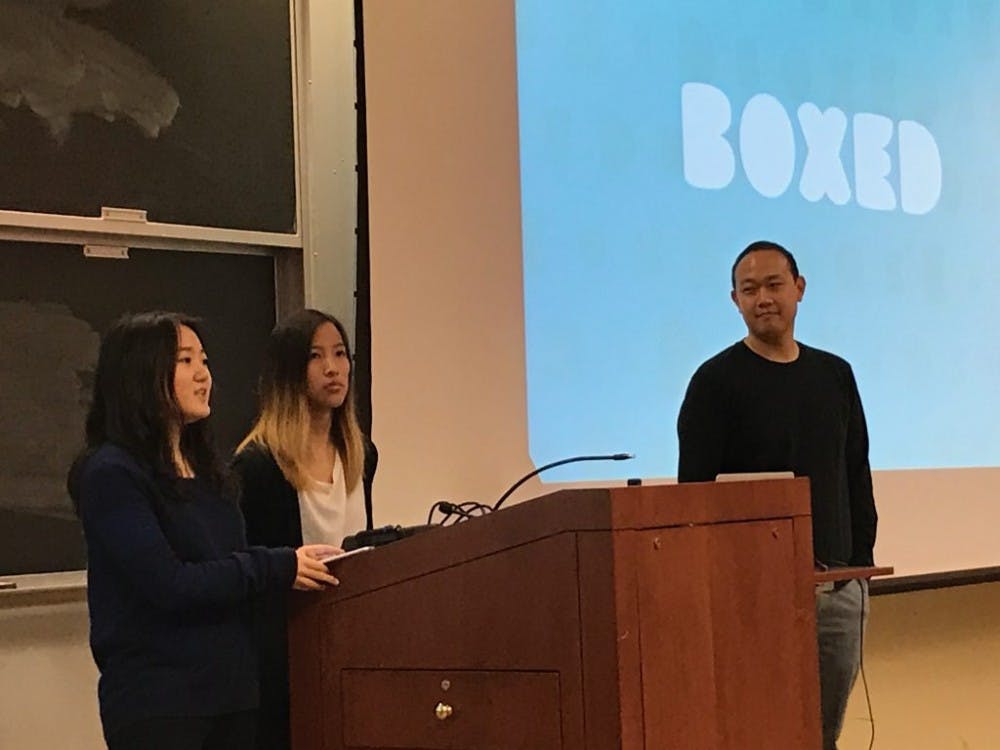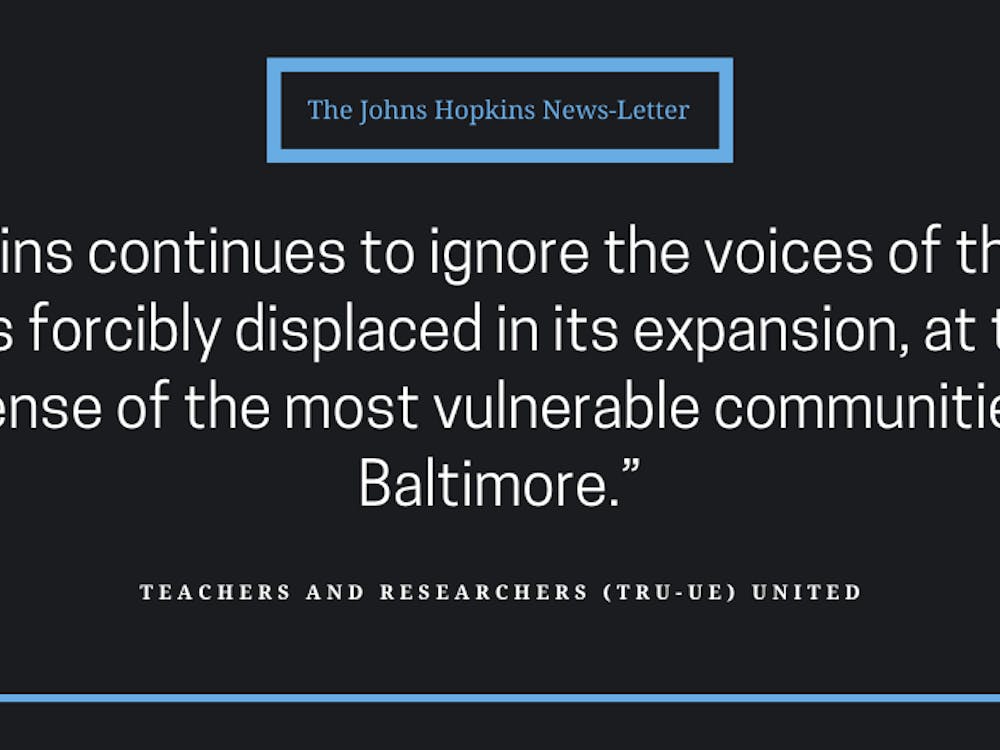Chieh Huang, a Hopkins alum and the founder of online wholesale retailer Boxed, spoke about how better work policies seed social change, on Thursday in Hackerman Hall. The Inter-Asian Council (IAC) sponsored the event.
Huang related the story of his company’s exponential growth, which initially began in his garage only three years ago. Since then, Boxed has become a national corporation with millions of users.
In his talk, Huang stressed the importance of individual stories. He identified his own past experiences, growing up in poverty as the child of immigrant parents, as having allowed him to create stronger connections with his employees and consumers.
After graduating from Hopkins in 2003, Huang spoke about how his experiences were fraught with successes and failures, driven by a series of lucky circumstances. He used this story to advise the audience about how to enact social change as future leaders.
In an effort to improve workplace benefits, Boxed announced that it would fund college education for the children of its employees. This policy prompted a stir in the business industry. Huang explained that it was important for him to build a relationship with his employees so that he had a better understanding of their struggles and could better direct his resources to help them.
Huang cited a conversation he had with his female workers about the pink tax, as an example of collaborative dialogue. The pink tax is the recognized inflation of products marketed to women as opposed to men and the taxation of feminine care products as a luxury item. Huang took this information and made policies to mediate the inflation in Boxed’s prices of products influenced by the pink tax that he hopes will eventually influence other companies.
PhD student David Tian spoke to Huang’s efforts and his ability to influence other companies and industry standards.
“There’s a contagion effect for leaders,” he said. “If one leader acts in this way, other leaders will see that too, and it will in turn influence them.”
Freshman Stanley Chu spoke about the obligation students have to facilitate change.
“There’s a responsibility within us as individuals,” Chu said. “People put a lot of investments specifically in us, so we have more power to engage in social change than people who don’t have those opportunities. There’s a certain amount of responsibility we have as individuals, as members of society, to invest back into our society.”
Freshman Alan Fang echoed these sentiments, drawing on the privileges Hopkins students are privy to.
“There are people who haven’t had the same opportunities as you, and the choices involve dealings and interactions with them,” Fang said. “You don’t really get that until you leave Hopkins, but it’s good to have that in mind as a student here.”
Tian also spoke about the difficult choices Huang identified during his talk.
“When you’re making these decisions for the good of your employees, you have to trust your gut,” Tian said. “He mentioned that sometimes employees come to him with problems and he can help them out, and sometimes he can’t. From a leader’s perspective, you consider your values and morals and what you think is important.”
He also said it is important for leaders to bear their influence in mind when making difficult decisions, such as Huang’s decisions about social changes like the pink tax.
“One person, just by doing good yourself, can influence all those other people,” Tian said. “You do good, and you help the people you help directly and indirectly, it’s a contagion effect.”
Chu spoke about whether Huang’s decisions as the leader of Boxed should be implemented in other companies and corporations.
“It’s important that people who own companies take care of their employees,” he said. “Perhaps it shouldn’t be expected of them to take care of them to quite that degree, but I think it’s important that they care about their employees to some degree.”
Fang said that he didn’t think it was reasonable to expect larger companies to adopt this model.
“Because his company, particularly his worker base, is much smaller, in a way it’s more sustainable,” Fang said. “I wouldn’t expect giants like Walmart to cover college for all of their employees’ kids. I admire his model, but of course it’s not something that can easily be applied to all companies.”
Chu disagreed, emphasizing the importance of the connection between leader and employees in any business.
“I think it’s important to find some sort of engagement between people who own companies and people who might not have as much,” Chu said. “Otherwise, I don’t think you can effectively lead a company as big as that.”























Please note All comments are eligible for publication in The News-Letter.